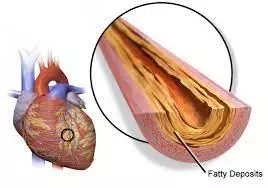- Home
- Medical news & Guidelines
- Anesthesiology
- Cardiology and CTVS
- Critical Care
- Dentistry
- Dermatology
- Diabetes and Endocrinology
- ENT
- Gastroenterology
- Medicine
- Nephrology
- Neurology
- Obstretics-Gynaecology
- Oncology
- Ophthalmology
- Orthopaedics
- Pediatrics-Neonatology
- Psychiatry
- Pulmonology
- Radiology
- Surgery
- Urology
- Laboratory Medicine
- Diet
- Nursing
- Paramedical
- Physiotherapy
- Health news
- Fact Check
- Bone Health Fact Check
- Brain Health Fact Check
- Cancer Related Fact Check
- Child Care Fact Check
- Dental and oral health fact check
- Diabetes and metabolic health fact check
- Diet and Nutrition Fact Check
- Eye and ENT Care Fact Check
- Fitness fact check
- Gut health fact check
- Heart health fact check
- Kidney health fact check
- Medical education fact check
- Men's health fact check
- Respiratory fact check
- Skin and hair care fact check
- Vaccine and Immunization fact check
- Women's health fact check
- AYUSH
- State News
- Andaman and Nicobar Islands
- Andhra Pradesh
- Arunachal Pradesh
- Assam
- Bihar
- Chandigarh
- Chattisgarh
- Dadra and Nagar Haveli
- Daman and Diu
- Delhi
- Goa
- Gujarat
- Haryana
- Himachal Pradesh
- Jammu & Kashmir
- Jharkhand
- Karnataka
- Kerala
- Ladakh
- Lakshadweep
- Madhya Pradesh
- Maharashtra
- Manipur
- Meghalaya
- Mizoram
- Nagaland
- Odisha
- Puducherry
- Punjab
- Rajasthan
- Sikkim
- Tamil Nadu
- Telangana
- Tripura
- Uttar Pradesh
- Uttrakhand
- West Bengal
- Medical Education
- Industry
Coronary artery calcium score bests polygenic risk score for risk prediction of CHD

In middle-aged to older adults, the coronary artery calcium score but not the polygenic risk score improved CHD risk discrimination suggests a new study published in the JAMA.
Coronary artery calcium score and polygenic risk score have each separately been proposed as novel markers to identify risk of coronary heart disease (CHD), but no prior studies have directly compared these markers in the same cohorts.
A study was done to evaluate change in CHD risk prediction when a coronary artery calcium score, a polygenic risk score, or both are added to a traditional risk factor–based model.
Two observational population-based studies involving individuals aged 45 years through 79 years of European ancestry and free of clinical CHD at baseline: the Multi-Ethnic Study of Atherosclerosis (MESA) study involved 1991 participants at 6 US centers and the Rotterdam Study (RS) involved 1217 in Rotterdam, the Netherlands.
Traditional risk factors were used to calculate CHD risk (eg, pooled cohort equations [PCEs]), computed tomography for the coronary artery calcium score, and genotyped samples for a validated polygenic risk score. Model discrimination, calibration, and net reclassification improvement (at the recommended risk threshold of 7.5%) for prediction of incident CHD events were assessed.
Results
The median age was 61 years in MESA and 67 years in RS. Both log (coronary artery calcium+1) and polygenic risk score were significantly associated with 10-year risk of incident CHD (hazards ratio per SD, 2.60; 95% CI, 2.08-3.26 and 1.43; 95% CI, 1.20-1.71, respectively), in MESA. The C statistic for the coronary artery calcium score was 0.76 (95% CI, 0.71-0.79) and for the polygenic risk score, 0.69 (95% CI, 0.63-0.71). The change in the C statistic when each was added to the PCEs was 0.09 (95% CI, 0.06-0.13) for the coronary artery calcium score, 0.02 (95% CI, 0.00-0.04) for the polygenic risk score, and 0.10 (95% CI, 0.07-0.14) for both. Overall categorical net reclassification improvement was significant when the coronary artery calcium score (0.19; 95% CI, 0.06-0.28) but was not significant when the polygenic risk score (0.04; 95% CI, −0.05 to 0.10) was added to the PCEs. Calibration of the PCEs and models with coronary artery calcium and/or polygenic risk scores was adequate (all χ2<20). Subgroup analysis stratified by the median age demonstrated similar findings. Similar findings were observed for 10-year risk in RS and in longer-term follow-up in MESA (median, 16.0 years).
In 2 cohorts of middle-aged to older adults from the US and the Netherlands, the coronary artery calcium score had better discrimination than the polygenic risk score for risk prediction of CHD. In addition, the coronary artery calcium score but not the polygenic risk score significantly improved risk discrimination and risk reclassification for CHD when added to traditional risk factors.
Reference:
Khan SS, Post WS, Guo X, et al. Coronary Artery Calcium Score and Polygenic Risk Score for the Prediction of Coronary Heart Disease Events. JAMA. 2023;329(20):1768–1777. doi:10.1001/jama.2023.7575
Keywords:
Coronary, artery, calcium, score, bests, polygenic, risk score, risk prediction, CHD, Khan SS, Post WS, Guo X,JAMA
Dr. Shravani Dali has completed her BDS from Pravara institute of medical sciences, loni. Following which she extensively worked in the healthcare sector for 2+ years. She has been actively involved in writing blogs in field of health and wellness. Currently she is pursuing her Masters of public health-health administration from Tata institute of social sciences. She can be contacted at editorial@medicaldialogues.in.
Dr Kamal Kant Kohli-MBBS, DTCD- a chest specialist with more than 30 years of practice and a flair for writing clinical articles, Dr Kamal Kant Kohli joined Medical Dialogues as a Chief Editor of Medical News. Besides writing articles, as an editor, he proofreads and verifies all the medical content published on Medical Dialogues including those coming from journals, studies,medical conferences,guidelines etc. Email: drkohli@medicaldialogues.in. Contact no. 011-43720751


